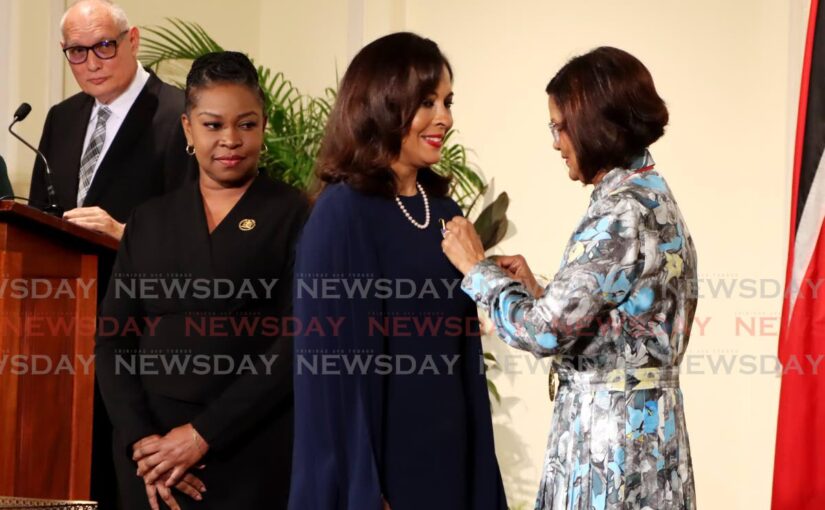Why an award for Bond
Written by Newsday on January 19, 2025

Outgoing US Ambassador Candace Bond received the Hummingbird Gold Medal at President’s House on January 17, mere days before her tenure ends, and as Donald Trump is set to be sworn in as US president, succeeding Joe Biden under whose administration she was assigned to TT.
While some awards can be granted to non-nationals, this is an uncommon enough move that the decision appeared to have been made to coincide with the ambassador’s departure tomorrow.
Ms Bond took office two years ago after a contentious four years of ambassadorial representation during Trump’s first term, and two years in which duties were managed at the local embassy by the charge d’affaires on Marli Street.
The departing ambassador made the most of her short time in the role. She attended many cultural events, represented the perspectives of the Biden administration vigorously, and offered real-world solutions and support to the ministries of energy and national security.
That ranged from supporting the requirements of the Dragon gas deal to supplying the Defence Force with radios and bomb detection devices to the Airports Authority.
On her watch, the Coast Guard received equipment worth US$1.6 million to support a newly refurbished maritime operations command centre, and SMEs were targeted with US$6 million in grants to support the development of renewable energy projects.
The US might have a contentious and challenging relationship with Venezuela, but Ms Bond did not shirk opportunities to offer support for local projects that work to support migrants, particularly children.
In the face of such enthusiasm, it might seem churlish to question the government’s decision to extend the honour of a national award to the ambassador, but the move raises questions.
By definition, an ambassadorial representative is not here for our benefit but to represent the agenda and strategies of the country that sent her. The US has long been a partner of mutual benefit with TT.
Over the decades, our countries have grown closer culturally than we have with the UK, the colonial power that governed this country for an unbroken 160 years, beginning in 1802.
So while there’s no question that Ms Bond served well during her posting, at what point did her service, reflective of the will of the US Department of State and the sitting US president, become national award-worthy? What will the State Department make of the award?
At that level, a national award without a compelling citation is likely to be viewed as a pappyshow at best and, at worst, clumsy political signalling to the incoming administration.
TT, the rest of the region, and the world face an interesting future engagement with the US.
Was this the right time to offer muddled messaging to an administration threatening to roll back the work of the Biden era?
The post Why an award for Bond appeared first on Trinidad and Tobago Newsday.




